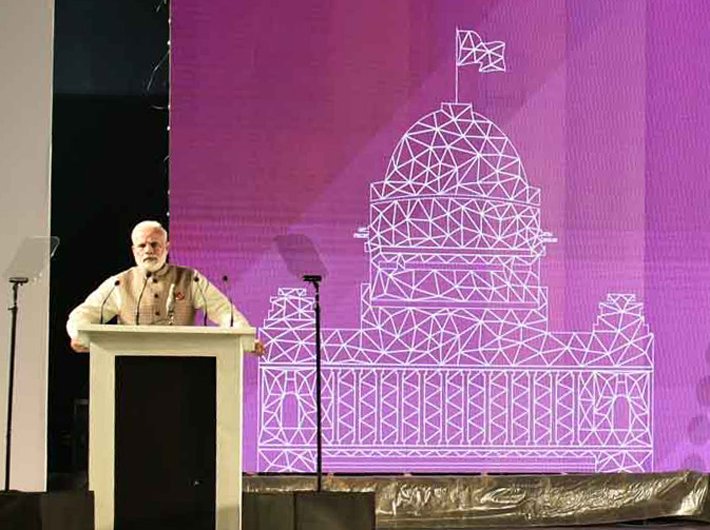Empowerment through digital access is an objective that the government of India is especially committed to, said the prime minister
"We in India, give primacy to the human face of technology, and are using it to improve what I call, 'ease of living'," said prime minister Narendra Modi on Thursday.
“Empowerment through digital access, is an objective that the government of India is especially committed to. "Digital India" is the world's largest, technology-led transformative programme which is paving the way for our citizens to avail digital services. We are using mobile power or M-power to empower our citizens,” said Modi at Global Conference on Cyber Space.
The prime minister said that rapid developments in the digital domain have mirrored immense change in India as well. Indian IT talent has been recognized worldwide. Indian IT companies have made a name for themselves globally.
Today, digital technology has emerged as a great enabler. It has paved the way for efficient service delivery and governance. It is improving access, in domains from education to health. And it is helping to shape the future of business and economy. Through each of these ways, it provides the less privileged sections of society, a more level playing field. On a macro-scale, it has contributed to emergence of a flat world, where a developing nation like India can compete on a level footing with developed nations, he said.
Modi said: “Technology breaks barriers. We believe it validates the Indian philosophy of "Vasudhaiva Kutumbakam" - the world is one family. This expression reflects our ancient, inclusive traditions. Through technology, we are able to give meaning to this expression, and indeed to the best of democratic values. “
He added that Aadhaar is the unique biometric identity of a person. “We have used this identity to liberate our people from queues and cumbersome processes. Three factors: first, financial inclusion through our Jan-Dhan bank accounts; second, the Aadhaar platform; and third, the Mobile phone, have greatly helped reduce corruption. We call this the J.A.M. or JAM trinity. Through better targeting of subsidies, the JAM trinity has prevented leakages to the tune of nearly 10 billion dollars so far. “
The prime minister went on to say that “we are using the digital domain to facilitate participative governance, or Jan Bhagidari. When we assumed office in May 2014, many people, particularly youngsters expressed a keen desire to share their ideas and work for the nation. It is our firm belief that there are millions of Indians, whose transformative ideas can go a long way in taking India to new heights”.
“On the last Wednesday of every month, I meet top union and state government officials for a PRAGATI Session. Technology breaks silos. Sitting in our respective offices, aided by the cyber world, we discuss and resolve important governance issues. I am happy to share with you that the PRAGATI sessions have resulted in faster decision-making, through consensus, in the larger interest of the nation. PRAGATI has put back on track infrastructure projects worth billions of dollars which were stuck in red-tape,” he said.
“I have even tried something of my own, through the Narendra Modi Mobile App. This App deepens my connect with citizens. The suggestions I get through the App are very useful.”

